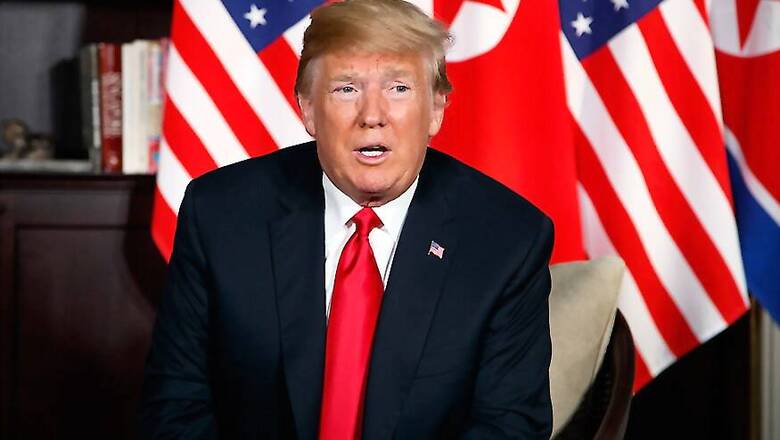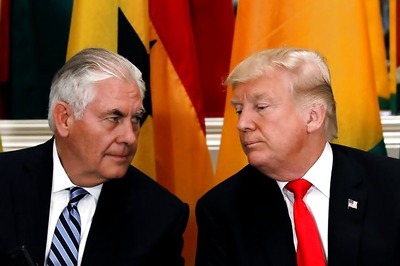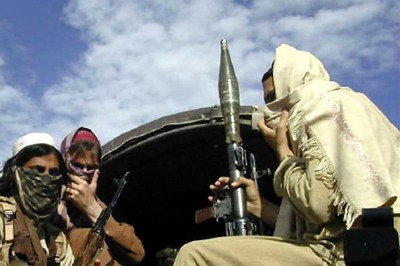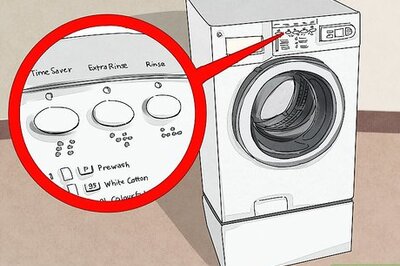
views
Washington: President Donald Trump on Monday said the United States had reached a "really good deal" with Mexico and talks with Canada would begin shortly on a new regional free trade pact.
But Trump hinted that all might not be smooth sailing from here, suggesting he could cut Ottawa out of the deal reached with Mexico and adding that he wanted to change the agreement's name.
"It's a big day for trade. It's a really good deal for both countries," Trump said.
"Canada, we will start negotiations shortly. I'll be calling their prime minister very soon," Trump said.
US and Mexican negotiators have been working for weeks to iron out differences in order to revise the nearly 25-year old North American Free Trade Agreement, while Canada was waiting to rejoin the negotiations.
While Mexico's top negotiator, Economy Minister Ildefonso Guajardo reiterated today that the next step was for Canada to rejoin the discussions on the trilateral accord, Trump said, "We could have a separate deal or we could put it in the same deal."
Trump indicated he would take a tough line with Ottawa on autos and dairy tariffs, long a source of tension between the neighboring countries.
Mexico's President Enrique Pena Nieto spoke to Canada's Prime Minister Justin Trudeau on Monday and urged Ottawa to rapidly rejoin the talks with the goal of getting a final NAFTA rewrite this week.
"I expressed the importance of them reentering the process with the goal of concluding an agreement this very week," Pena Nieto said on Twitter.
He said the agreement with Mexico is "good for both countries." "We made it much simpler," Trump said in the Oval Office announcement, surrounded by Guajardo, Mexico's Foreign Minister Luis Videgaray and US Trade Representative Robert Lighthizer.
Pena Nieto joined by phone, and thanked Trump, calling the breakthrough on NAFTA "very positive for the United States and Mexico," and looked forward to the trilateral agreement.
Trump, however, said he wanted to drop the name NAFTA, saying it had "bad connotations" because the United States had been hurt by the agreement.
"This is something that is very special for our manufactures and our farmers," Trump said.
Guajardo and Videgaray have been shuttling back and forth to Washington for more than a month for meetings with Lighthizer to try to iron out the bilateral stumbling blocks, including rules for the auto market, before the end of August.
Talks ground to a halt in May, in part due to the July 1 presidential elections in Mexico.
The trilateral treaty has been a key target in Trump's aggressive trade strategy and he has repeatedly threatened to scrap it altogether, branding it a "disaster".
But after a year of intense negotiations to salvage NAFTA, US and Mexican negotiators are keen to seal a new deal before Pena Nieto hands power to President-elect Andres Manuel Lopez Obrador on December 1.
For that to happen, the US Congress must be notified 90 days in advance, which means the administration must send the notice by the end of the week.
Foreign Minister Chrystia Freeland of Canada had said earlier she was encouraged by the progress and would rejoin the talks once bilateral discussions concluded.
She currently is on a European trip but Guajardo said last week Freeland had indicated she would be available as soon as the United States and Mexico were ready to move to the next phase.
Freeland's spokesman Adam Austen said, "We will only sign a new NAFTA that is good for Canada and good for the middle class." "Canada's signature is required."
A key element of the US-Mexico talks has been content requirements for autos, which Mexico reportedly agreed to increase to 75 per cent from North America to get duty free NAFTA treatment.
The sides also have reached agreement on the portion of cars made at "high wage" factories that can receive duty-free treatment, according to reports.
That requirement would deter US auto manufacturers from moving production to Mexico, where labour costs are lower, something central to Trump's attacks on NAFTA. (




















Comments
0 comment